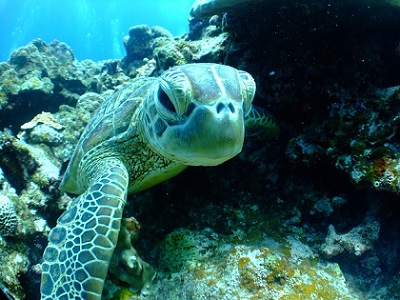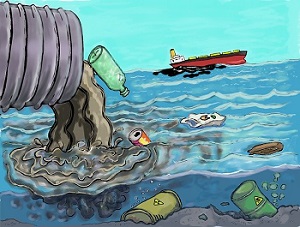Act!
Inspiration · ResourcesTurning Turtle
Help secure a UN Global Treaty to create a vast network of ocean sanctuaries
Despite covering over 70% of our planet's surface, harbouring our incredible sea-life, providing food for billions and helping to balance our climate, our oceans are subject to overfishing, oil drilling and spills, plastic pollution and climate change and their health is in drastic decline. According to Greenpeace only 1% of our global oceans are currently protected! However, the United Nations are currently discussing a Global Ocean Treaty which would have the power to create ocean sanctuaries all over the world.
In order to spread the word, Greenpeace have enlisted the help of Dame Helen Mirren, Olivia Coleman and the creators of Wallace and Gromit to make a short, powerful film about the impact that reckless industries are having on ocean life. Telling the heart-breaking story of a turtle family trying to get home, in an ocean that desperately needs protection, the plight of sea turtles represents the suffering of our oceans as a whole. Like the turtle family in the film, sea turtles in real life are under intense stress from destructive industries. According to the IUCN-SSC Marine Turtle Specialist Group Six out of the seven sea turtle species are threatened with extinction due to the pressures of multiple ocean perils including ''fisheries impacts, direct take, coastal development, pollution and pathogens, and global warming."
Because of their highly migratory nature, effective marine turtle conservation requires international and sometimes intercontinental coordination and cooperation. This is what's needed with our oceans as a whole and why a UN Global Treaty is so important.


Greenpeace's campaign to help secure this treaty to create a vast network of ocean sanctuaries is to give not only turtles and all sea creatures but all wildlife a chance to recover and thrive. "This is because the vast array of amazing life in our oceans is one of our best allies in the fight against climate breakdown. Sea creatures naturally capture climate-wrecking carbon and store it away."
However a survey published last year in 'Nature' found that marine animals are twice as vulnerable to climate change-driven habitat loss as their land-dwelling counterparts. The analysis (based on research focusing on around 400 cold-blooded species) suggested that "marine creatures are ill-quipped to adapt to rising temperatures, and unlike land animals that can seek shelter in the shade or a burrow, are largely unable to escape the heat." The researchers called for immediate lower greenhouse emissions and a halt to overfishing and ocean habitat destruction.
Please help Greenpeace in their campaign to help secure a strong oceans treaty by watching and forwarding the video below and signing their petition.